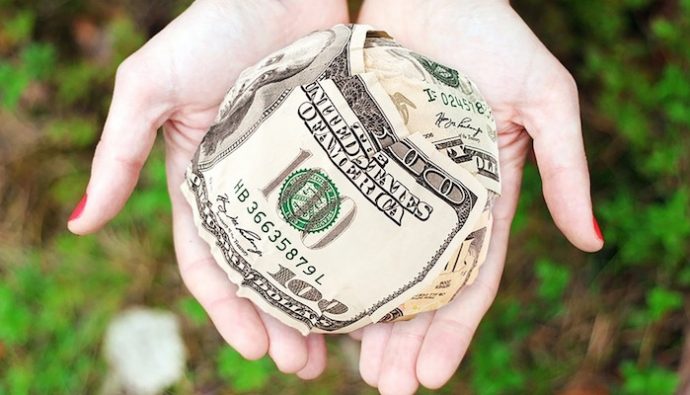There are some things we recognize as inherently dangerous. We teach our children about these things – things like fire, knives, plutonium – you know, that kind of thing. We don’t teach them that these things are bad, because being “bad” and being “dangerous” are two different things. Instead, we teach them a sense of careful awareness when handling this type of thing.
- It’s not that riding your bike in the street is bad; you just have to be careful.
- It’s not that fire is bad; it’s that you have to be careful when you do it.
- It’s not that knives are bad; they just have to be handled carefully.
Interestingly, we don’t do this with money. That’s despite the warnings we find about money in the authoritative book in our lives:
- The one who loves silver is never satisfied with silver, and whoever loves wealth is never satisfied with income. This too is futile (Ecclesiastes 5:10).
- Keep your life free from the love of money. Be satisfied with what you have, for he himself has said, I will never leave you or abandon you (Hebrews 13:5).
- “No one can serve two masters, since either he will hate one and love the other, or he will be devoted to one and despise the other. You cannot serve both God and money” (Matthew 6:24).
- For the love of money is a root of all kinds of evil, and by craving it, some have wandered away from the faith and pierced themselves with many griefs (1 Timothy 6:10).
Money is dangerous. It’s not that it’s bad in and of itself; but it is dangerous. And if it’s truly dangerous, then we should exercise the same degree of caution we exercise with other things in this same category of things. If we can’t take the Bible’s word for it, then all we have to do is a quick search of what happens the vast majority of time when people win the lottery. There is a slew of ruined lives left in the wake of such a windfall.
Just like fire, just like knives, just like a lot of things, we will spend our lives handling and managing money. This is our reality. So in accepting that reality, we also ought to be prepared to exercise the right degree of caution as we do so.
Here are three practical and simple ways how to do that:
1. Limit your lifestyle.
Chances are you make more money now than you did 5 years ago. And you made more money then than you did 10 years ago. Sure, there will be bumps in the road, but this is the general progression of life.
So what happens when you start making more than you used to? There are really only two options – either you spend more, or you don’t. One of the most practical ways we can avoid the pitfalls of money and handle it carefully is by intentionally limiting our lifestyles. We can choose to live on less, though we could live on more. When we build an intentional cushion into our lifestyle, we not only free up additional money that can be invested for the sake of the kingdom; we also protect ourselves from becoming trapped by a certain standard of living.
2. Practice gratitude.
One of the ways money tends to snare us is through entitlement. I’m sure you work hard for the money you have. But there is a difference between working hard for your salary and living with a sense of entitlement. When we live with a sense of entitlement, then that sense of entitlement will grow. And grow. And grow.
Money will become for us an end in itself; on that we deserve, and one that we need more and more of in order to keep chasing some perceived level of satisfaction.
One of the antidotes to this sense of entitlement is gratitude. Intentional gratitude. Gratitude in prayer. Gratitude to our employers. It’s taking the time to remind ourselves as often as we can that we are fortunate and blessed to have what we have in God’s providence.
3. Give it away.
Money becomes a pitfall for us when we start to love it; to trust in it; to look to it for our primary source of joy and satisfaction and security. So what’s the easiest way to avoid that danger? To give it away.
To give it away systematically and regularly, as well as occasionally. All these action points work together, you see. When we practice gratitude and battle entitlement, when we intentionally limit our lifestyles and therefore have more margin, we have money that’s ready and available to be given away. And when we both regularly and occasionally give money away, it means we are holding our finances with a loose grip. This is the way we are to hold all such things in the world; as we grip tightly to Jesus, we hold other things with less and less ferocity.
May it be ever increasingly so.
Subscribe to MichaelKelley.co
Never miss a new post. Subscribe to receive these posts in your inbox and to receive information about new discipleship resources.




